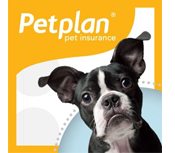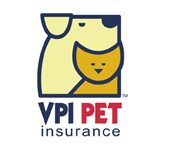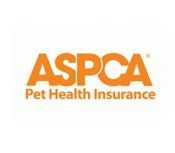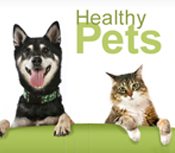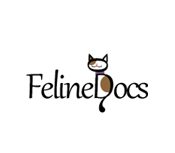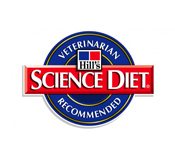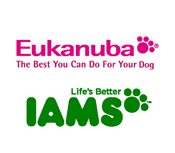Guidelines For Your Kitten’s First Year
Kittens grow at an amazing rate. Your kitten can reach its full adult size by nine months of age! By one year of age, your cat is considered mature. The first few months of your kitten’s life are extremely important for his/her lifelong health and behavioral wellbeing. At birth, a kitten nurses from his/her mother and receives some immune protection through that first milk. By 8 to 12 weeks of age, any protection received from the dam diminishes in the kitten’s system, leaving it vulnerable to serious infections. As a result, kitten vaccination protocols have been carefully created to maximize the kitten’s immune protection at key intervals. Kittens are also at risk of developing intestinal parasite infections because of naïve immune systems. Studies show that about 80% of kittens are infected with at least one intestinal parasite no matter what source the kitten is obtained from! All kittens should be dewormed at least twice for roundworms and should have a fecal parasite exam (this is when a poop sample is tested for the presence of microscopic parasites or eggs). Starting your kitten off with the appropriate preventative care is the best thing you can do to give your cat an excellent start to a healthy life. Below are general recommendations during the first year of a kitten’s life.
At 6 Weeks Old:
- Pediatric Physical Examination
- FVRCP (Feline Viral Rhinotracheitis/Calici/Panleukopenia) Vaccine #1 (Upper respiratory virus vaccines often called “Distemper”)
- 1st Deworming = Heartworm prevention in Kitten Kit
- Fecal Parasite Exam
At 9 Weeks Old:
- Pediatric Physical Examination
- FVRCP Vaccine #2
- 2nd Deworming if indicated by fecal analysis
- If needed, treatment for any other parasite uncovered in the fecal exam
At 12 Weeks Old:
- Pediatric Physical Examination
- FVRCP Vaccine #3
- Blood Test for Feline Leukemia and Feline Immunodeficiency Viruses
- Feline Leukemia Vaccine #1
*We test to make sure your kitten is negative for these diseases because mama cat could have transmitted either of these untreatable diseases to your kitten. It is important to know the status of your kitten as positive test results will significantly affect the recommended care for your kitten throughout his/her entire life. Feline Leukemia vaccination is a core vaccine for all kittens for their first year of life, and for adult cats depending on lifestyle.
At 15-16 Weeks Old:
- Pediatric Physical Examination
- FVRCP Vaccine #4
- Feline Leukemia Vaccine #2
- Rabies Vaccination (required under Colorado State Law), annual
At 5-6 Months Old:
- Spay (females) or Neuter (males)
- +/- Front Declaw (strongly depends on lifestyle and personal choice)
- Extract any retained baby teeth at time of spay/neuter
- +/- Microchip (if not already done)
As Needed:
- Nail Trims
A physical exam and all vaccines will need to be updated in one year. If all kitten vaccinations were given at the appropriate intervals your kitten will be able to receive three year vaccinations for both the FVRCP and Rabies vaccines at that annual exam. Your kitten will need an annual Feline Leukemia booster at 1 year of age, the if your cat goes outside, Feline Leukemia Vaccine needs to be updated yearly. Please plan to bring a fecal (poop) sample to the annual exam so that a fecal parasite exam can be performed. You can use any air/liquid tight container or pick one up from the hospital.
Signs at home that may indicate a change in your kitten’s/cat’s health include vomiting, diarrhea, drinking more water and urinating more, not using the litter box, decreased grooming/socializing, decreased appetite, hiding or changes in vocalization.
If your kitty misses more than 2 meals in a row it is critical to bring your furry friend in as soon as possible for a complete physical exam and additional laboratory diagnostic tests.
Laboratory tests are vital in our assessment of your cat’s health and treating underlying disease conditions. Early detection and intervention often allows for successful medical management of serious diseases. When disease is severe or has progressed it is more difficult and more expensive to manage.
In a matter of 30 minutes we can perform a Complete Blood Count (CBC) and Chemistry panel (evaluates blood sugar for diabetes, kidney function, liver status, electrolytes and many other health indicators).
Often a urinalysis is indicated to look for infection and evaluate kidney function. Other more specialized tests can provide specific understanding of disease processes and help determine treatment and prognosis.
When indicated we will recommend lab work and/or other diagnostics such as X-rays and ultrasound with most illnesses. Northgate Animal Hospital strives to recommend diagnostics and treatment based on the best interest of the patient. We will base our recommendations on our evaluation and consideration of each patient, and family, on an individual basis. Animals age more rapidly than humans and lab values should be reviewed yearly even if they are apparently healthy.
Discomfort/Pain
At NGAH our doctors and staff are highly trained and attuned to non-verbal/non-vocal communication from your companions. A large part of our efforts are to perceive/interpret/diagnose and treat pain in our furry friends. Guardians often misinterpret silence and average behavior as comfort. Although animals will often cry out with sudden pain, animals often do not vocalize chronic pain. Consequently many guardians do not perceive more subtle cues as indicators of pain. We often are told by guardians that their limping cat is not in pain, however a limp indicates pain in an animal just as a human who limps is in pain. Cats are particularly good at hiding pain. Cats who are in pain or not feeling well tend to hide, decrease social activity, decrease jumping, decrease grooming and eating or start peeing/pooping outside of their litter boxes.
Dental Health
Healthy cat teeth are vital to maintain a happy, healthy cat. Cats, like humans, build up plaque (soft and gooey) which turns into tartar (cement like) in 24 hours if not brushed away. Bacteria in the mouth and tartar on the teeth, combine together to cause gingivitis (gum inflammation). Tartar and gingivitis result in periodontal disease (infection of tooth root structures) which often requires extraction or root canal of the diseased teeth. Cats are also highly susceptible to tooth decay similar to cavities. NGAH is highly motivated to help you maintain your furry friend’s dental health and can recommend many at home dental care options including teeth brushing and CET dental health products.
Grooming
Some cats are great at grooming themselves and some cats are not. Poor groomers will develop mats that may require shaving if let go too long. Moderate to severe matting of fur is painful and can lead to skin infection. It is very important to teach your kitten to tolerate and even enjoy brushing several times per week. Brushing also greatly decreases shedding and hair ball problems. If you cannot brush your kitten/cat and they develop mats, they will need to be groomed and may even need to be shaved by a professional groomer or here at NGAH. Nails should be trimmed as needed every 2-4 weeks. We are happy to teach you how to trim nails at home.
Behavior
Kittens are tons of fun and full of energy! This energy can be overwhelming and even turn into unwanted behaviors very quickly. Kittens need to play, play, and play some more! Kittens and cats do not inhibit their play behaviors with humans as much as we would think is natural. It is very important to use appropriate toys like laser pointers or strings on sticks rather than using our hands. Kittens can become inappropriately aggressive and even start ambushing their guardians when they are not taught to be gentle with our delicate human skin! Scratching posts or mats are very important to minimize destruction of beloved furniture! Kittens and cats can be taught not to vertical scratch and to stay off counters by using training and various aids for training. Kittens and cats love to eat the strangest things including rubber-bands, hair-ties, strings, needles, real and synthetic plants, etc. We must be diligent to kitty proof our homes! Please ask for our help in promoting the development of a happy respectful kitten!
Many adult cats are happy and well adjusted. However we can help with emerging and/or chronic behavior issues as the need arises. We see kittens grow out of some behaviors such as hyperactivity and overzealous play. However adult cats can develop behavior issues secondary to obvious and even very subtle stress. Cats will perceive many major or minor changes in and outside of the house as stressful. Humans, other cats and dogs (even their best friends) can cause stress for cats. Cats will often display anxiety and stress by urinating and even pooping outside of the litter box. Please let us know if you have questions and would like help with behavior issues as we have many management options including environmental modifications, handling/training techniques, and medical considerations as well.
Companion Health Insurance
We strongly recommend companion health insurance for every furry companion. Health insurance will ease the stress of financial consideration when making decisions for your cat’s routine and sick health care. Northgate Animal Hospital has no direct relationship with any insurance company. Clients file claims directly with their chosen insurance company. Following are some companion health insurance companies to consider:
Reliable Websites
Nutrition for the Healthy Kitten
Companion animal nutrition is a very confusing topic with all of the choices we have for food and diet recommendations from many different and conflicting sources. The companion food industry has become a multi-billion dollar industry in the last several years. While it is wonderful that our furry friends are such an important part of our families, this extreme and rapid growth is leading to many niche diets that are based on fads and media exposure of many human issues that may or may not be relevant or even appropriate for feline nutrition. We often see urinary problems and even gastrointestinal distress directly caused by the well-intentioned but misguided attempts of companion guardians trying to provide what they have been told by the sales representatives of many commercial diets.
It is very important that your kitten receives kitten food throughout his/her growth into an adult cat.
Guidelines for choosing a diet for your healthy kitten:
1) Cats are carnivores. Cats need a much higher percentages of protein compared to dogs.
2) Cats require taurine, an essential amino acid that must be supplemented in their diet.
3) Cats are lactose intolerant. Do not feed them milk or milk based products.
4) Many cats are sensitive to plastic and may develop severe chin acne if fed and watered in plastic bowls. Use ceramic or stainless steel bowls washed regularly.
5) Carbohydrates may be provided by grain sources and non-grain sources. Cats do not need as many carbohydrates, but they are not inherently grain sensitive. Some cats may be grain sensitive, but many are not.
6) Raw meat is an incomplete diet source, may cause GI upset, and even be the source of life-threatening infection of Salmonella and E. coli. Please read the included AVMA policy on raw food diets.
7) Meat by-products (heart, liver, spleen, empty/clean intestines, blood, kidneys) are highly nutritious and do not include hide, hair, hooves, and teeth.
NGAH recommends companion animal nutrition providers who have been developing and researching appropriate feline nutritional diets for decades. These companies spend millions of research dollars to determine the best sources and ingredients for balanced feline nutrition.
NGAH recommends:
Weight management
Obesity is a common problem in our adult cats and even some kittens. Starting healthy dietary management and habits with your kitten will help ensure a successful transition into a healthy adult. At NGAH we are very proactive in assessing a healthy body condition score and weight for every patient. Obesity leads to joint problems, pain, increased workload on the heart, breathing complications, inability to go for walks, and even diabetes mellitus. Obesity significantly reduces lifespan by several years. We are very happy to help you develop and maintain a healthy diet, feeding program and exercise program for your furry friend.
Dietary Supplements
Kittens/cats on a high quality balanced diet do not need vitamin supplements. However, Essential Fatty Acids (fish oils) are very beneficial for healthy skin in our very dry Colorado climate.


